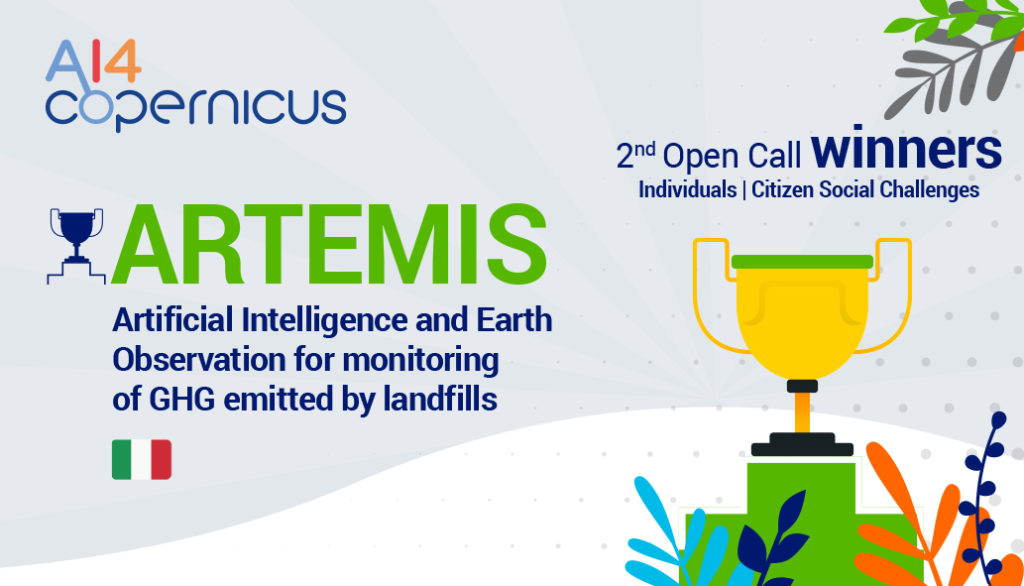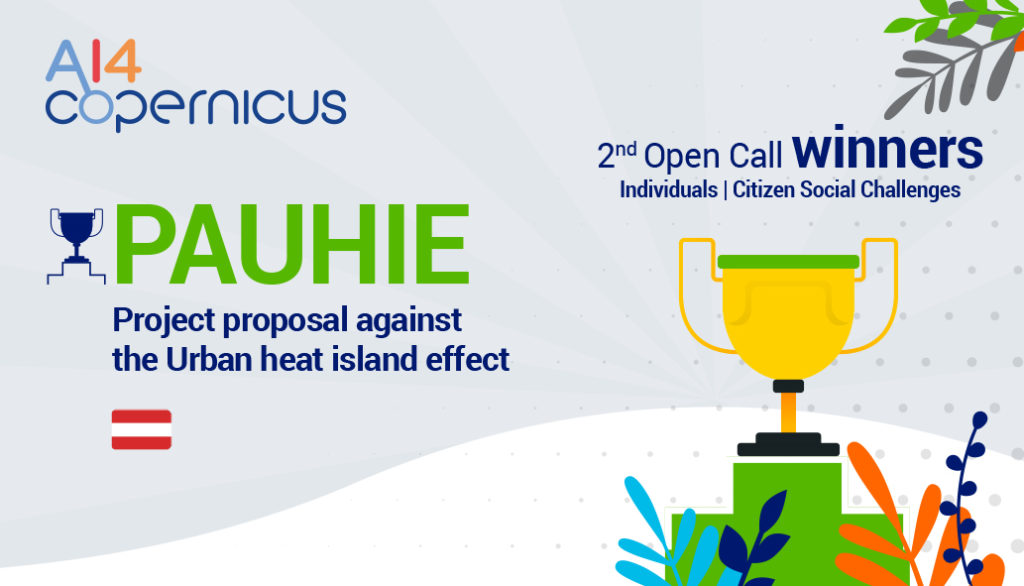2nd round of Open Calls: Meet the Winners!
Meet the winners of the 2nd Open Call for citizen social challenges, with beneficiaries individuals and a total funding up €10.000 (€5k for each social challenge).
ARTEMIS – Artificial Intelligence and Earth Observation for monitoring of GHG emitted by landfills

Country: Italy
Abstract: Landfills are a major contributor to the world’s anthropogenic greenhouse gas (GHG) emissions. The reduction of GHG emitted from landfills, and from waste management industry in general, is one of the most relevant challenge to achieve a zero-impact economy in the next decades. It would bring several environmental benefits and, most of all, would allow to reduce the impact on public health: improvement of quality of life and reduction of health related costs. The project ARTEMIS aims to exploit Artificial Intelligence to analyse complex data sets that include SENTINEL-5, SENTINEL-2 images and data collected from air quality monitoring stations deployed on ground with the scope to provide a daily monitoring of GHG concentrations in the areas surrounding the landfills with a spatial resolution less than 1km2 (target value 100m). ARTEMIS is a solution that brings both economic advantages (i.e: cost reduction for the implementation/control/verification of more environmental sustainable waste management process and for accomplishment of normative duties ) and social benefits (e.g.: reduction of diseases, improvement of quality of life and environmental parameters) to the Community and Landfill Managers. ARTEMIS contributes, through the innovation of an industrial sector (SD-9), to the development of more sustainable cities (SDG-11) with a worldwide applicability.
PAUHIE – Project proposal against the Urban heat island effect

Country: Austria
Abstract: Because of rapid climate change and the densification of the urban structure, the overheating of urban spaces, known as the “Urban Heat Island” (UHI) effect, is a significant problem in many cities. In the past, urban densification was often accompanied by increasing sealing. Therefore, urban space heats up. Because of the compactness and increased building density, the heat locked in the urban canyons keeps temperatures high even during the night. As a result, residents depend on cooling and cannot relax at night. That creates significant health problems. This project proposal shows a possible solution to this important problem. Artificial Intelligence (AI) technologies and Earth Observation (EO) data can help to reduce the UHI effect by locating heat spots in cities, identifying the specific types of heat generators (horizontal- and vertical surfaces) and proposing targeted countermeasures. With the help of 3D printing, we can produce new components with a function like a self-shading facade.

